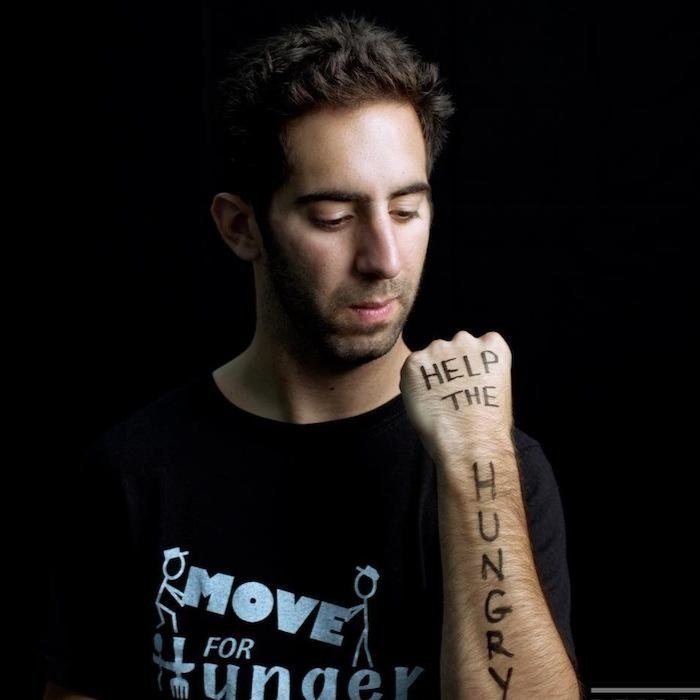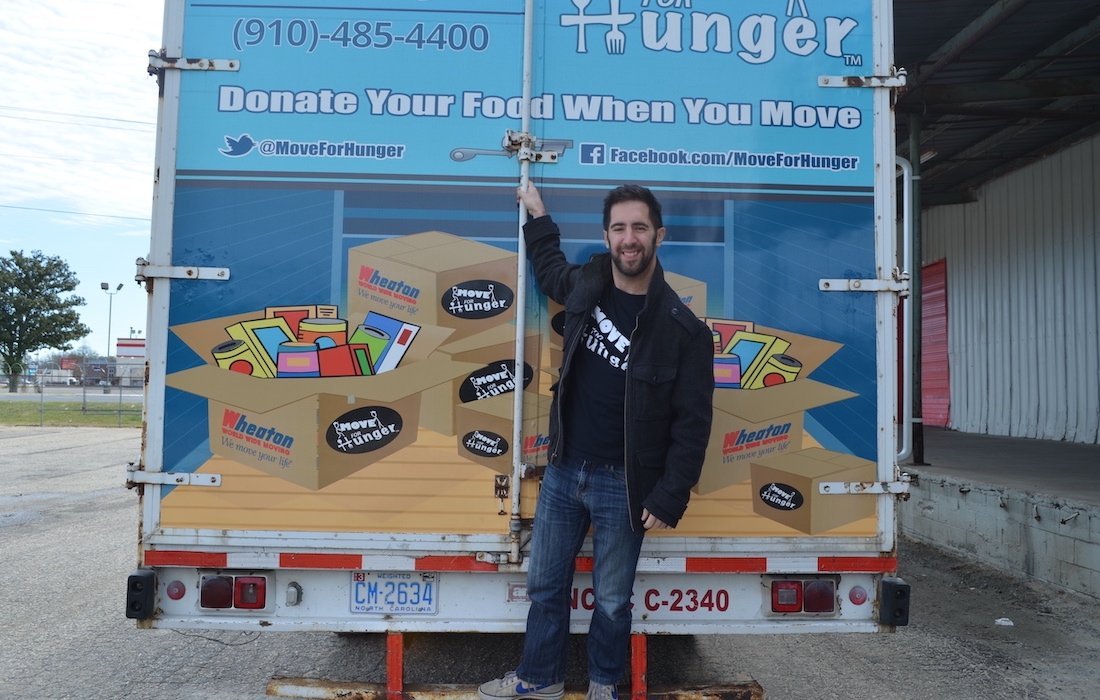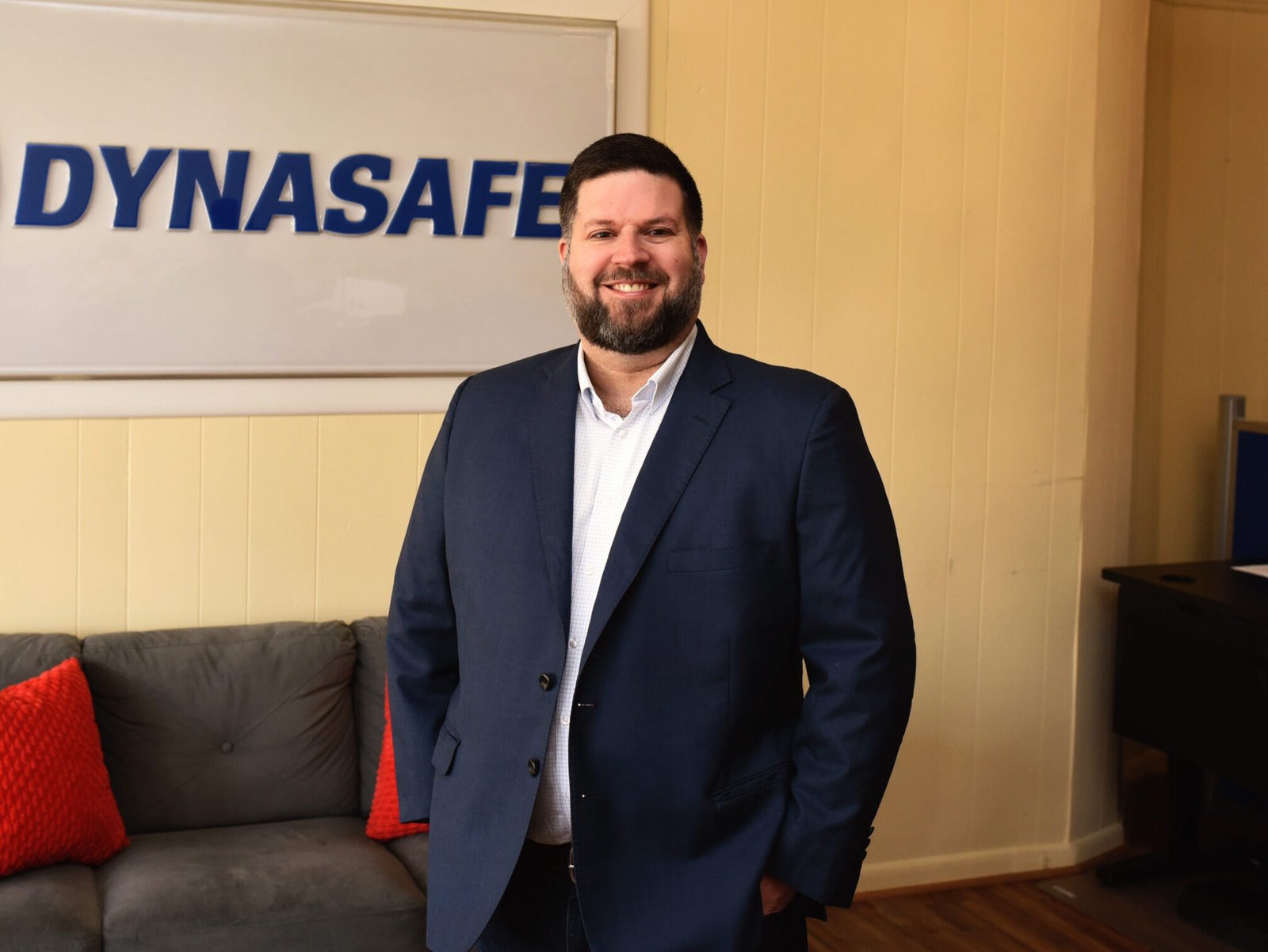I recently went one on one with Adam Lowy, founder of Move For Hunger.
AM: Thanks again for taking the time to share your advice. First things first, though, I am sure readers would love to learn more about you. How did you get here? What experiences, failures, setbacks or challenges have been most instrumental to your growth?
AL: My family has owned a moving company for nearly 100 years (dating back to my great-grandfather). Growing up, working on a moving truck, I learned really quickly that that was NOT what I wanted to do with my life. Haha. I got my degree in marketing and ended up getting a job doing special events for one of the biggest automotive brands in the world – Mercedes-Benz. My family has always been incredibly charitable, and the idea of Move For Hunger started out as just being a nice thing to do. Movers were in people’s homes, people were always throwing away things. It felt like a natural fit. It was only after delivering food to the food bank for the first time, and also my first ever experience visiting a food bank, that my eyes became open to the issue of food insecurity. 1 in 6 kids in this country go to bed hungry each night, and my family’s company was able to help feed them by doing their job. What would happen if the whole industry got involved? That’s essentially what helped launch the organization.
I was very fortunate to launch an organization at a time when corporate social responsibility (CSR) was just becoming popular. I had great mentors early on and had opportunities to speak to the leaders of Do Something, CharityWater, Livestrong, and many others which all helped shape the way I was able to build Move For Hunger. I also made a ton of mistakes along the way. Mostly small. A few big (I once pitched a company very early on for $100k. They had never given anywhere near that amount to a charity before, and I clearly didn’t do my research. At first their CEO cut off the few ties we had with them already, but then he flew out to meet us, joined our board, and introduced me to his competitors. He never ended up giving $100k, but 12 years later, his company is still a partner and the early introductions he made were more valuable than any dollar amount ever could be). But they were all part of the learning journey. No one had ever done what our organization is doing before. And we were also working with an industry which was relatively new to philanthropy (at least in a structured way). We worked to find leaders in the space, build relationships with them, and turn them into champions for our cause. Essentially we became really good at networking, and it was that networking that ultimately mobilized an entire industry for purpose.
AM: What are the best leadership lessons you have learned from leading a non-profit organization?
AL: Even as the founder, the organization can never be about one person. It’s always about the impact and, ultimately, the team that creates that impact. Some of the most respected organizations in the world are led by individuals who are good at storytelling and creating connections with others.
AM: What are your best tips for fellow leaders of non-profit organizations?
AL:
-
Find really talented people, and give them the latitude to do their jobs well.
-
Invest in technology and constantly refine your processes. Great tech and great processes enable organizations to scale while keeping costs down. In the non-profit world, where funding is often scarce, anything that can lower costs and increase impact should be prioritized.
-
Celebrate milestones – even little ones. Non-profit work is grueling, and your team members need to feel recognized for their accomplishments.
AM: In your experience, what are the defining qualities of an effective leader? How can leaders and aspiring leaders take their leadership skills to the next level?
AL: Leaders are decisive, question the status quo, appreciate constructive criticism, aren’t afraid to get their hands dirty, are constantly learning, and always put the team before themselves. The best way leaders, and aspiring leaders, can take their skills to the next level is by connecting with other leaders or learning about the people and companies that inspire them. It’s easier than ever these days to send a LinkedIn message or a tweet to an individual or brand. You’d be surprised how often someone responds on the other end. And even if they don’t there are plenty of case studies, blog posts, documentaries, books, etc. where you can learn about other leaders’ journeys. Apply what makes sense to your own journey.
AM: What are your three best tips applicable to entrepreneurs, executives and civic leaders?
AL:
-
Define your goals and focus your time and attention on things that move the needle. Don’t get distracted by all of the “other opportunities.” While it’s good to pilot and test new ideas, don’t let them get in the way of the work and processes that are driving your goals.
-
Breakup before it gets bad. If an employee, partnership, or program just isn’t working out, don’t let it drag on. Have the conversation early. It will likely save you months of headache and cost, and help you move on to being a more effective organization again.
-
Constantly iterate your processes. You should always be working to improve even your best running processes. Even the things that made you “great” early on won’t stay that way forever. The environment around you is constantly changing, and it’s your role to stay ahead of those changes.
AM: What are the keys to building winning partnerships?
AL: A good partnership is always a win-win. It’s about leveraging one another’s resources to reach a collective goal. There are plenty of company’s who just give non-profits money without anything in return. Those are not partnerships – that is philanthropy. Partnerships should be strategic – especially in the non-profit space. If I can help my partner drive more business, they are much more likely to continue working with us. Using data to measure your partners’ impact and helping them communicate that impact are all part of the relationship as well. Doing good is good for business, and good partnerships are built in ways that drive impact for all parties.
AM: What is your best advice on building, leading and managing teams?
AL: Surround yourself with really smart people. Clearly define their roles, their goals, and empower them to achieve them.
AM: What is the single best piece of advice you have ever received?
AL: Don’t ever wait for things to be perfect before getting started. Nothing will ever be perfect. Try now, and every small failure you encounter is an opportunity to learn and improve.
AM: What should everyone do to pay it forward?
AL: Donate your food when you move!
AM: Is there anything else you would like to share?
AL: Visit www.moveforhunger.org to learn more about Move For Hunger and get involved with the cause.









